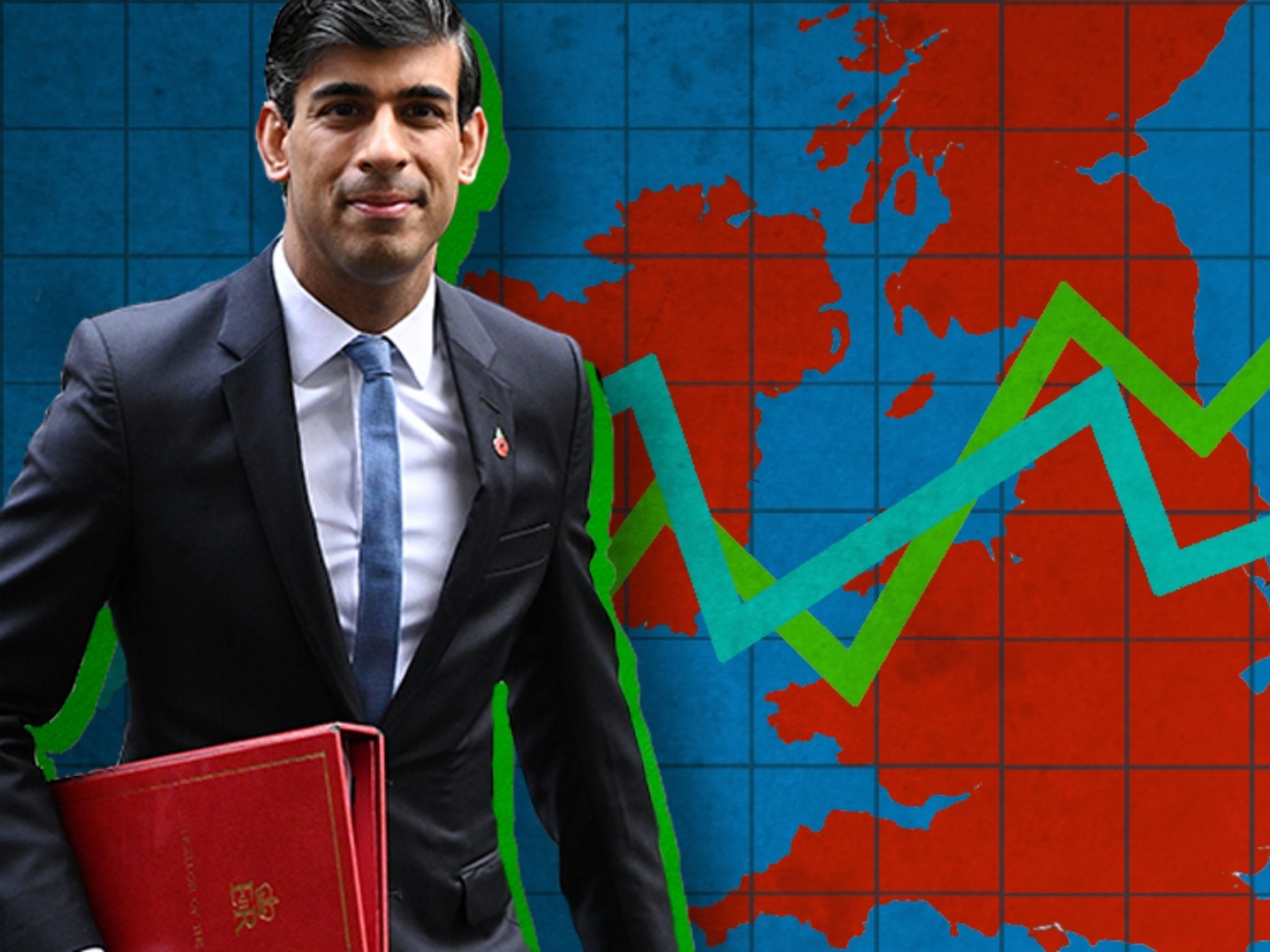Now is not the time to hike taxes, but Rishi Sunak is still going to talk about it
The chancellor has talked about the need for an ‘honest conversation’ about Britain’s battered public finances. Here’s what may be in his sights

Rishi Sunak’s budget promises to be most consequential for years, as much for what he says as what he does.
There’s always a bit of a fuss in the run up to these events, especially when the fiscal backdrop looks dicey, as it does right now, and things like tax rises and austerity have butted their way into the conversation.
The Treasury likes to float scary sounding proposals in advance through judiciously placed leaks – one would be potentially putting corporation tax up from its current level of 19 per cent to as much as 25 per cent – to soften up the public and especially the Tory troops.
When the reality isn’t quite so scary, so, say, 23 per cent, staged over a couple of years, they’ll inevitably still grumble, but ultimately decide not to make too much of a fuss because it could have been worse.
It’s transparently obvious when this is happening. And yet it almost always works.
However, it’s become clear that the stakes are higher this time. Witness the reported threats to withdraw the whip from Tory MPs minded to oppose what Sunak comes up with.
Again, that could just be part of the softening up exercise. On the other hand, the chancellor has been talking about having “honest conversations” with the British public. Translation: “Pain is coming”.
We can expect the furlough scheme and other supportive measures to be extended at least through the course of Boris Johnson’s Covid reopening roadmap, given the prime minister promised to stand behind people/businesses through the course of the pandemic.
But Sunak is expected to at least talk about the need to pay for all the spending he’s indulged and to restore the public finances. So while we mightn’t get much in the way of immediate tax rises, we probably be treated to a sighter of what’s coming.
Some of what’s so far been mooted make sense, at least for those in “this deficit financed spending binge can’t last forever” camp, such as the former chancellor, Lord Hammond.
Take corporation tax. Each 1p rise raises £3.3bn. Putting it up to 23p would generate more than £13bn annually. The idea that cutting it sharply would deliver a surge in investment also hasn’t worked out so well in practice.
Increasing it affects only profitable companies, so businesses that have handled the pandemic well, such as Tesco and the other big supermarket groups.
The disadvantage with it has been much discussed: it’s very easy to void for the multinational companies which have positively boomed while the virus has been raising hell. An increase isn’t going to overly concern an Amazon or an Apple as a result of their legal gaming of the international tax system.
Freezing the lifetime pension allowance over the course of the current Parliament will yield a lot less. But while taking this step will make the vocal personal finance/pensions lobby very cross it’s easy to sell to the public because it only affects those with pots of £1m or more. Morally the case is strong too. Rich pensioners had it easy during the austerity years, keeping nearly all their sweeties while others suffered greatly.
The idea been criticised as a “stealth tax” and maybe it is. But given that the government has ruled out hiking income tax, national insurance, VAT (which the economy couldn’t take at the moment anyway), even fuel duty, the Chancellor has been left with a limited range of options for raising revenue.
It will be interesting to see whether he does anything with Capital Gains Tax, and in particular the various allowances that are available. The possibility has been discussed.
It certainly wouldn’t be surprising to see more such freezes of thresholds, such as the level at which the top rate of income tax kicks in. Given the savings built up by those with disposable incomes – an estimated £120bn – this wouldn’t be unjustified.
Of course, the word “sensible” – as some of these proposals are – doesn’t always sit very well with Tory MPs, who are apt to view any tax rise as something approaching heresy.
Except that, just as a stopped clock tells the right time twice a day, they might have a point, at least when it comes to those saying “too early” as opposed to “no, nay, never” or “let’s just have some more slash and burn austerity when it comes time to pay the piper” (to be fair, the latter isn’t often heard these days).
Contrast what’s happening here with what’s happening in the US, where the president, Joe Biden, is in the midst of getting a gargantuan stimulus bill through congress, one that commands surprisingly strong support among Republican voters as well as Democrats.
Biden, too, is expected to try increasing corporation tax (giving Sunak cover to do the same). But the emphasis is clearly on getting the US economy motoring before the question of paying for it is addressed (if it is addressed but we’ll park that one for now).
The UK has suffered, is still suffering from, an unprecedented economic shock and unlike the US it also has the self inflicted wound of Brexit to deal with.
If Sunak wants to talk to the British public about what’s necessary, then fine. But tax rises can clearly wait until such time as the economy can bear them. Even tax rises targeted at individuals and organisations with the capacity to pay? Maybe so.
Confidence is an important component of any economy. Signalling a willingness to do what’s necessary to deliver growth, jobs and recovery would help to restore that.
Join our commenting forum
Join thought-provoking conversations, follow other Independent readers and see their replies
Comments


Bookmark popover
Removed from bookmarks